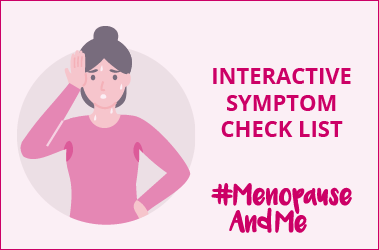
Vaginal dryness
If you suffer from vaginal dryness, you are not alone. Vaginal dryness can affect any woman, at any age. However, after the menopause it is very common (more common than people think) – affecting over half of post-menopausal women aged between 51 and 60.
Natural lubrication produced by glands at the neck of the womb (the cervix) keeps the vagina supple and moist. The moisture moves slowly down through the vagina, keeping it clean, healthy and removes any dead cells.
During sexual excitement, extra moisture is produced to aid sexual intercourse. However, a quarter of women aged 50-59 experience vaginal dryness problems during sex and 16% experience pain.
Many women may experience vaginal dryness during sex because they are not sexually aroused - this is often caused by insufficient foreplay or psychological reasons such as stress. Other reasons for vaginal dryness before the menopause can be linked to certain hygiene products. Some drug treatments such as allergy and cold medications and some antidepressants, can also dry out mucous membranes, including vaginal tissues.
During the menopause, the level of oestrogen decreases. Without the production of oestrogen, the skin and support tissues of the vulval lips and vagina become thinner and less elastic and the vagina can become dry.

Symptoms of a dry vagina can include pain during sex – even gentle friction can cause pain and discomfort. Painful intercourse can then have a knock on effect contributing to a loss of sexual desire. Speak to your healthcare professional about what treatments are available.
Vaginal dryness can make it uncomfortable to sit, stand, exercise, urinate or even work. Vaginal dryness can affect everyday life, whether women are sexually active or not. This can have a detrimental affect on quality of life. Many women also notice that their smears become more painful or difficult.
There are a number of simple ways in which to lubricate a dry vagina:
- Using lubricants
- Vaginal moisturisers
- Local oestrogen treatments
As this is an embarrassing problem many women keep it to themselves and this can put a large strain on their relationship with their partner, especially if women feel unable to tell their partner why they are not interested in sexual activity. Despite the high number of women experiencing problems related to vaginal dryness, it is still a silent problem that many people feel embarrassed to talk to their partners, friends and even doctors about. Only a quarter of women with these problems actually seek treatment.
Remember, women spend a third of their lives in a postmenopausal state and they need to make sure that they maintain the quality of life that they had before the menopause. Vaginal dryness does not need to be treated as an inevitable part of growing older - something can be done about it! Treatments are available.
Vaginal dryness can respond well to treatments, which can also help greatly with discomfort and pain during sex.
Don’t be embarrassed to talk to your healthcare professional. If you find it hard to talk, write down pointers
before your consultation – use our Symptom checklist as a starting point.
Recommended for you
Job Code: NON-2022-0120
Date of preparation: February 2022





